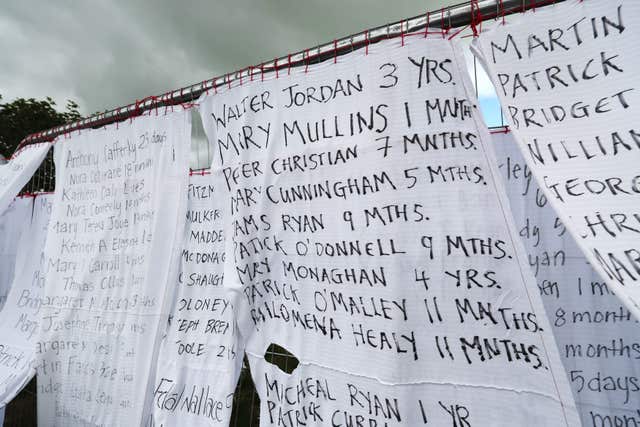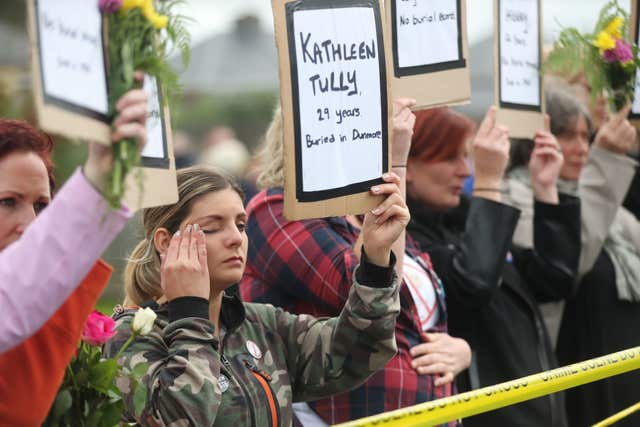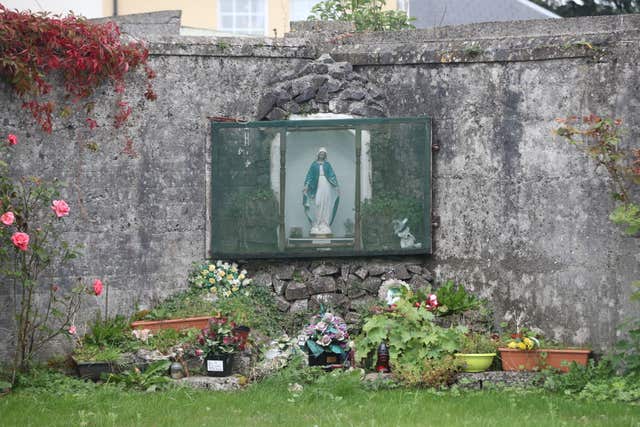Full forensic excavation for mass grave at Tuam home for unmarried mothers
A commission was set up following allegations that around 800 infants were buried in a septic tank.

The Irish government has approved the forensic excavation of the site of a former mother and babies home.
A mass grave was found at the former home in Tuam in Co Galway last year.
Ireland’s Children’s Minister Katherine Zappone announced there will be a forensic excavation and recovery of the human remains, as well as a forensic analysis of any recovered remains and, where possible, identification and respectful reburial.
A commission was set up following allegations that around 800 infants were buried in a septic tank at the former home for unmarried mothers.
Ms Zappone described it as a “day filled with emotion”.
The excavation can only happen after legislation is passed by the Irish parliament to deal specially with the project, which is expected to cost between six million and 13 million euro.
Ms Zappone explained that the bespoke legislation was needed to provide “specific lawful authority” to carry out the excavation of the site.
A group of Government officials and experts are expected to meet in the next two weeks to examine how to put the legislation in place.
Between 1925 and 1961 around 800 infants were thought to have been buried in a septic tank at the home in Tuam, around 20 miles from Galway.

– A phased approach to the forensic excavation and recovery of the juvenile human remains;
– The use of systematic on-site ground-truthing and text excavations to effectively locate potential burials;
– The forensic analysis of any recovered remains and, where possible, individualisation and identification;
– Arrangements for respectful reburial and memorialisation and the appropriate conservation of the site.
Ms Zappone described the Government’s approach as “reasonable and rooted in profound empathy”.
“The initial work on site will focus on the remains known to be within the series of chambers identified by the commission of investigation,” she added.
“Let me clear and let there be no doubt that every effort will be made to locate and recover all of the remains from the site.

The Bon Secours sisters, who ran the home until it closed in 1961, have offered a fixed sum of 2.5 million euro towards the costs, which Ms Zappone said was not a settlement.
Niamh McCullagh, a forensic archaeologist, said that estimating the number of remains “is difficult” but added there was “perhaps more than 100” at the site.
Ms Zappone said DNA testing will be carried out to identify the remains and that a pilot process will be undertaken on a small number of remains on the site.
Ms McCullagh added that retrieving DNA is “complex and challenging” because of the age of the juvenile remains.
“The fact that the government has decided to initiate a forensic protocol for recovery of these remains will assist towards trying to establish individualisation and identification but in terms of whether DNA is going to actually be possible, to say with certainty is simply not possible at this point”, Ms McCullagh added.
Ms Zappone said: “The personal testimonies of those connected to the mother and baby home will live with me forever.

She also stated that what happened in Tuam was part of pattern of injustice that “we cannot overcome unless we acknowledge it”.
“We must look not just at the actions of the church or religious orders, we must examine and accept the role of the State and wider society,” she added.
Ms Zappone described it as an “unprecedented piece of work” adding that they do not know if they can identify all the remains.
She also said she has not heard from Pope Francis after raising the issue with the pontiff during his visit to Ireland in August but added that she is certain that the Vatican is aware of what she announced on Tuesday.
Dr Geoffrey Shannon, National Child Protection Rapporteur, who published a report into the mother and baby home, said: “I expressed the view that we need to have regard to the distress and anguish of family members.
“Family members have human rights that need to be respected and vindicated.”
James Gibbs, of the Department of Children and Youth Affairs, said that any evidence of criminal matters that emerge during the process will be dealt with by Garda.





